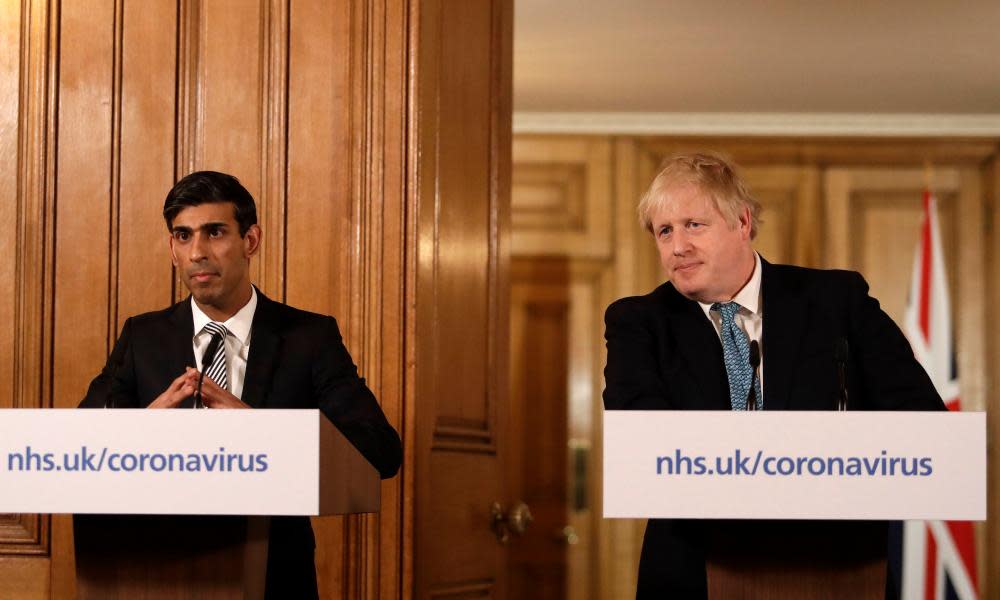In a pandemic, the wrong economic policy can be fatal

Larry Elliott’s lucid analysis of the economic issues surrounding Covid-19 (This global recession will be prolonged, and policymakers know that, 16 March; With the Bank’s bullets spent, can the Treasury keep the economy on life support?, 17 March) does not emphasise some fundamentals enough. The irrefutable fact is that output – real national income – is falling, and thus the country as a whole will be worse off.
The basic problem to be tackled is how to manage the distribution of that fall, and in particular how to protect poorer groups. Manipulating total demand, such as by printing money, will cause inflation and could make things much worse for those groups. (Amartya Sen, in his 1981 book Poverty and Famines, argues that such a policy caused famine in India in the 1940s.) Using income tax to redistribute real incomes is a possibility. In addition, ensuring the supply of basic essentials, especially food, should be a priority. For example, guaranteeing farmers higher prices, well in advance, should stimulate supply (creating money to do that is OK, so long as output is increased as a result).
The entire economic situation is unprecedented, though it is a little like that of the 1970s and early 80s, when supply was also hit. In contrast, the 1930s and post-2007 were characterised by a fall in demand, and Keynesian policy was appropriate.
John Levi
Retired academic economist, Abingdon, Oxfordshire
• Larry Elliott suggests that universal basic income is unlikely to be implemented due to big changes needed in the tax and benefits system. However, these are not normal times, and we need to act to support those who are self-employed, laid off and in the gig economy, and all others who are having financial difficulties due to coronavirus. It seems to be a fairly simple way of making sure everyone has an income, can be done quickly if the will is there, and avoids much of the confusion of subsidies, mortgage and rent holidays and other measures that he mentions.
Terry Quinn
Preston
• When I first became an advocate for unconditional universal basic incomes (UBIs) almost 50 years ago, I little imagined the circumstances in which they would become widely canvassed for this country. It would especially have surprised me to see pictures of Pause the System demonstrators in hazmat suits sitting down outside Downing Street, demanding UBI. If it is adopted as an emergency measure, many people may become aware of its advantages, and support its permanent adoption.
Bill Jordan
Whimple, Devon
• Nils Pratley observes that, as a result of measures to suppress the pandemic, a global recession is now almost certain (Chancellor’s £330bn package is big – but not big enough given the size of the threat, 18 March). We now know that austerity kills. What will be the cost in terms of human life of the economic downturn? Spending constraints on health and social care since 2010 are linked to an estimated 152,141 additional deaths, according to research published in BMJ Open. Will mortality from the self-inflicted economic downturn exceed the Covid-19 deaths averted?
Dr John Doherty
Stratford-upon-Avon, Warwickshire
• Health experts are correct in predicting that lives will be saved from death by coronavirus if social interaction is reduced, and that the greater the reduction, the more lives saved (Scientific modelling: Italy’s hospital data changed everything, 17 March). It is comparatively easy to calculate lives lost due to a virus; it will take longer to calculate the effects of a worldwide economic recession caused by the shutdown – the lives lost due to unemployment, despair, homelessness, famine, suicide, neglected non-virus illness, etc. I predict that a future analysis will show that more lives will be lost as a consequence of the current modelling than will be saved; and that it will have disproportionately targeted the health and wellbeing of the poorest and most vulnerable.
Robert Silman
Former senior lecturer, Barts and the Royal London hospitals

 Yahoo News
Yahoo News 
